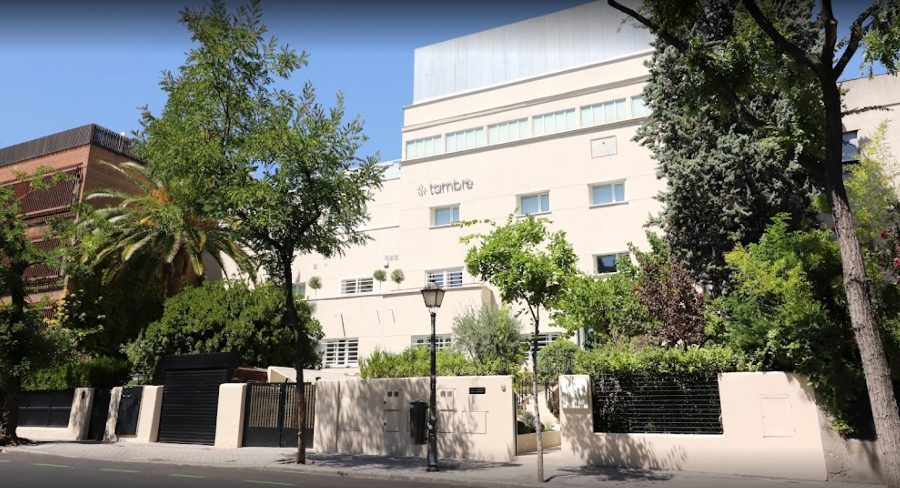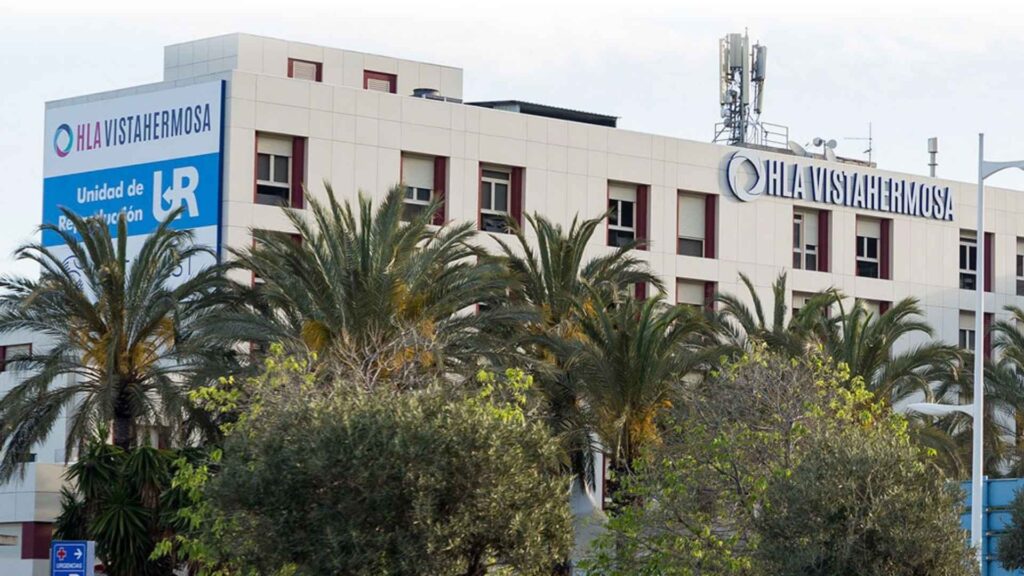Egg donation IVF clinic guidance
IVF with donor eggs abroad – costs, recommended clinics, and success rates
If you are considering undergoing IVF with own eggs or an IVF with donor eggs abroad, read our comprehensive guide on IVF abroad cost, packages and low-cost options. Get to know everything about legislation, costs of egg donation abroad, IVF success rates and IVF clinics’ certification.
What is IVF with donor egg treatment?
Egg donation is a form of in-vitro fertilisation in which the patient uses donated oocytes (donor eggs) – from egg donors – to conceive. Retrieved eggs from the donor are fertilised with sperm, usually from the patient’s partner. Once cultivated and transferred, embryos may implant themselves in the patient’s uterus, hopefully leading to a successful pregnancy. The donation process can either be anonymous or non-anonymous.
The prospect of using an egg donor can feel overwhelming and daunting, often leaving patients full of questions and concerns. It is not an easy choice to make; the emotional mourning of fertility and the practical decisions on finding a donor and clinic are a lot to process. As intimidating as it may appear, however, for many women egg donation provides the best chances for a successful pregnancy.
When might IVF with donor eggs abroad treatment cycle be appropriate? Indications.
For many infertile women, IVF treatment with donor eggs is the only chance for maternity. The procedure may be adopted if:
- The patient does not have or can not produce oocytes/eggs of her own – e.g. due to damaged or missing ovaries;
- Patient’s ovaries malfunction prematurely;
- Patient’s oocytes are of insufficient quality;
- Patient has been diagnosed with genetic issues which may be reason of previous failure
- Patient has undergone multiple IVF programs – without success;
- Patient – the woman is over 40 years old.
The basic two indicators for an IVF with donor eggs cycle are the medical history and the age of the recipient. However, some patients choose the donor egg IVF treatment because of a higher pregnancy rate. Usually, patients going through egg donor programs may expect a better chance to become parents than patients using their own eggs – depending on the women’s age. The reason is “quality eggs” which are received from young, healthy egg donors.
What is the age limit for IVF with donor eggs?
The woman age limit for IVF with donor eggs is the same as if you were receiving treatment using your own eggs. Although there are country differences the age range is broadly similar: for instance, in the Czech Republic the age ceiling for women is 49, in Greece it is limited by law to 54, similarly in Spain it is 50 but clinics have discretion to treat women up until the of 54 dependent upon personal circumstances. In North Cyprus the upper age limit is 55 and in Latvia there are no specific age limits governed by law, decisions are made by clinics on a patient by patient basis.
What are the types of IVF with donor egg programs?
- IVF with fresh donor eggs require the cycles of both the donor and recipient to be synchronized therefore the process requires planning and can be fairly rigid in order for synchronization to happen. As no invasive procedures are involved here – such programmes are often highly efficient (the success rate is about 50-70%).
- IVF with frozen donor eggs allows more flexibility when it comes to planning. However, this type of programme has certain limitations as well. Freezing and thawing oocytes may lower their quality which in turn can slightly reduce the success rate of infertility treatments by 5 to 10%. Yet in most cases, infertility clinics have extensive experience and proper equipment and are capable of neutralizing this issue successfully.
- Double donation programs – the sperm from a bank is used instead of your partner, and donor eggs from young women. In that case, you may expect a higher number of embryos but the “genetic link” between child and parents will be missing as both partner and women gametes come from donors.
What are the types of IVF packages abroad?
There are many types of IVF packages which are appropriate when a patient uses their own eggs – mini IVF – with minimal ovarian stimulation, IVF on natural cycle – without any stimulation, IVF with PGS – using preimplantation genetic screening toward chromosomal abnormalities, IVF with PGD – preimplantation genetic diagnosis towards single gene mutations. There are also different types of techniques undertaken in the IVF laboratory which include ICSI, blastocyst culture, embryo glue, embryo monitoring. All IVF packages can be combined with the use of sperm donors from a dedicated sperm bank for single women, same sex female couples or for couples where the male factor is not treatable. Egg donation and embryo donation are also used in IVF treatments and these involve oocytes obtained from a separate donor also from egg donor bank.
There are various approaches to present and offer IVF packages abroad:
- IVF packages where only basic procedures are included in the cost – most often used for IVF with own eggs.
- IVF packages with donor eggs – usually all basic procedures, donor compensation and other donor costs are included.
- IVF refund guarantee programs – IVF packages where you may have a refund up to 100% depending on expected outcome – 6th or 12th week pregnancy or a live birth
- Embryo donation packages – where you may get embryos which come from other couples
How long does IVF abroad take?
The main difference in terms of timing is potentially waiting for a donor match if this type of IVF abroad treatment is chosen. Once the procedure commences the timeframe of the actual treatment is the same as if you were accessing treatment in your home country. Timing is important for clinics who offer IVF abroad – conscious that patients do not want to stay away from home for long periods or travel too many times, clinics invariably offer flexible treatment schedules. If you want to know more, read this article: IVF with donor egg process step by step.
What are the reasons to go for donor egg IVF abroad?
The reasons depends on patients individual situation usually connected with the patients home country where the egg donation may not be allowed by law, or egg donation cost is to high or it’s difficult to find an egg donor or the success rate of such program is not satisfactory for patient.
Undergoing IVF treatment with donor eggs abroad has many advantages. There are an increasing number of fertility clinics in in numerous countries offering egg donation programs and professional medical care to a very high standard. International couples, who decide to take a ‘pregnancy trip’ due to various reasons, are usually offered:
- Easier access to certain services (e.g. no waiting lists, etc.);
- High-quality infertility treatments at lower costs than in their home country;
- Fertility clinics’ experience in the field of egg donation programs;
- IVF clinics and fertility specialists with an international reputation;
- The attractive geographic location of fertility centres, so treatment can be combined with some time off in a holiday hot spot
- The success rate of infertility treatment is higher than in national centres.
How long does IVF abroad take with donor eggs?
Usually the treatment may take between 3-6 weeks depending on medical conditions of the recipient, egg donor availability.
Egg recipients should prepare themselves for IVF treatment with donor eggs by undergoing necessary medical examination and testing. If no contraindications occur the patient may begin an egg donor program which is likely to consist of the following stages:
- An initial appointment with a fertility specialist;
- Donor selection (parent-recipients should be assisted by a physician or embryologist);
- Laboratory procedures (man deposits sperm to be used for donor’s eggs fertilization first – then embryos are cultured in the IVF lab);
- A patient and embryo transfer preparation (woman takes medicines which make her uterus ready for taking the embryos; the embryo transfer procedure may require a short stay in a fertility centre).
If you are not sure whether you need to undergo an egg donor program, please consult an infertility specialist.
Donor egg IVF abroad – what’s important?
Before you make a final decision concerning your treatment abroad, think which of the above factors matter for you the most and ask for details in more than one fertility centre. What else is good to know?
- Legal regulations in the country of your choice – e.g. limitations on donating and receiving gametes, requirements to be met by donors, donorship anonymity regulations, procedures allowed within IVF programs, limitation on the number of children born thanks to a single donor, etc. Age limit for patients, the maximum number of embryos to transfer within an IVF cycle.
- Plan your travel and stay – find out the costs of travel, transfers and accommodation, check out where to seek help while your stay in a country, how to find your way around town, what places to see, etc.
- Local healthcare conditions and standards – Please note that infertility treatment (including egg donation programmes) may lead to medical complications! As rare as they may be – it is highly advisable to know what aid you can count on in local hospitals. You may need to take specific medical documentation with you and/or purchase additional medical insurance prior to departure!
- The most trustworthy, prestigious and credible IVF centres in a country – which are the best fertility clinics, who are the most reliable, who offers the most affordable treatments
- Find out what other patients (past or present) have to say: Simply ask the community!
How do I prepare for IVF with donor eggs?
From a test perspective a number of interventions will assess the ability of your uterus to carry a pregnancy, tests will ensure you have no viral diseases such as rubella, cytomegalovirus, HIV and Hepatitis and you will tested for any existing infection. Non invasive preparation might involve access to counselling or changes to lifestyle and diet that are aimed to maintain or increase your general health.
How to choose a clinic for donor eggs IVF abroad?
Choosing a fertility centre to undergo infertility treatment is an important step! Before you take it, do consider a few things. Prior to selecting, please check:
- Fertility centre’s overall experience in egg donor programme;
- Fertility specialists’ qualifications and experience as well as the technological equipment used by the clinic;
- Whether the IVF clinic has its own egg bank or uses an external supplier;
- The waiting list for women looking for egg donors
- How are egg donors evaluated/qualified (medical examination and verification);
- What sort of information regarding egg donors is available to international patients;
- IVF clinic’s full offer, medical procedures availability and pricing options – treatment costs;
- Languages that are spoken by the clinic’s personnel;
- The success rates of egg donation programs that are achieved by the fertility clinic.
- The maximum age of a woman that can be qualified for the egg donor program
- Treatment plan – is it possible to discuss it before visiting the centre
- On-line and on-site counselling options with psychologist, doctor, nurse, midwife
When contacting an IVF clinic of fertility consultant for the first time it is good to ask what the entire treatment process entails; how many visits will you have to make during your treatment and how long will each step last, what medical procedures are in use there and what assistance can you expect from the clinic (e.g. airport transfers, hotel booking, etc.).
What are the IVF clinics for patients over 40?
All leading private treatment providers offer IVF treatments to patients over 40 – in some countries where funded treatment is available like the U.K. this access may be restricted by age. Patients over 40 will be consulted and advised that age consideration plays an important part in the success of particular types of treatment therefore older patients may be asked to consider additional options including donor based treatment.
Where can I do IVF abroad?
Spain remains one of the most popular destinations for patients who travel for fertility treatment although there are a number of destinations that are increasingly popular. These include the Czech Republic, Greece and Cyprus who provide a service characterized by good success rates, cost and donor availability and countries like Russia and the Ukraine who offer more diverse treatments such as surrogacy. Outside Europe the United States remains popular with couples seeking treatments involving surrogacy and gender selection.
Do I need travel insurance for IVF abroad?
It is very unlikely that your standard holiday insurance policy will cover you comprehensively for treatment in clinics abroad. You are already making a substantial financial investment in purchasing fertility treatment so do not cut costs when it comes to insurance, choose a specialist insurance company and policy to ensure all risks are covered.
What do UK patients need to know about IVF with donor eggs?
For UK patients, it’s important to understand that egg donation is subject to specific legal requirements, including the rule that donors must be identifiable to any resulting children. When considering egg donation in the UK, this regulation can impact local donor availability. Because of this, some patients look into treatment options abroad, where laws around donor anonymity may offer more flexibility.
How much does IVF cost in different countries?
IVF costs can vary widely from one country to another. Many patients discover that going abroad gives them access to equal—or even higher—standards of care at a more affordable price. Comparing international IVF costs, including extras like medication and lab work, can help you make a more informed and cost-effective decision.
How reliable are published IVF success rates?
Not all IVF results are easy to interpret—some clinics emphasize clinical pregnancies rather than live births, or use data that doesn’t reflect the full patient population. If you’re comparing clinics, it’s essential to look closely at how success rates are reported and what they actually represent.
Are IVF success rates different when using donor eggs?
Yes. IVF with donor eggs often results in higher success rates due to the donor’s younger age. However, not all clinics provide transparent data, and it’s important to review their reporting methods and definitions.
Can IVF calculators predict your success accurately?
These tools provide a general idea based on factors like age and treatment type, but they’re built on averages and assumptions. While they’re a good starting point, they’re no substitute for a personal evaluation. If you’re curious about how they work, it’s worth reading more about how IVF calculators are used in practice.
What’s the difference between cumulative pregnancy and cumulative live birth rates?
Cumulative pregnancy rates refer to the total number of pregnancies from multiple IVF cycles, including frozen embryo transfers. Cumulative live birth rates show how many resulted in a baby being born. Both are useful, but live birth rates provide a clearer picture of actual success.
Why does IVF with donor eggs sometimes fail?
Even with high-quality donor eggs, IVF doesn’t guarantee pregnancy. Causes of failure include poor embryo development, implantation issues, uterine abnormalities, or undiagnosed immunological conditions. Understanding these factors helps set realistic expectations and guides better treatment planning.
What are the main differences between anonymous, non-anonymous, and known egg donation?
Anonymous donation means the donor and recipient never meet and only basic physical information is shared. Non-anonymous donation allows the child to access the donor’s identity once they turn 18. Known donation involves someone the recipient already knows, like a friend or family member, and includes open communication and mutual agreement.
What is embryo donation and where can I access it in Europe?
Embryo donation means using donated embryos—usually from previous IVF cycles—to help others conceive. In Europe, options vary widely by country in terms of cost, anonymity, and age limits. You can explore where it’s available, how much it costs in this complete guide to embryo donation in Europe.
How to find an IVF clinic abroad?
We use our extensive experience to help patients who need IVF own eggs or egg donation abroad and provide you with a set of unique tools which will make the whole process of finding a solution to your fertility problems a lot easier. These include:
IVF Abroad – Patient’s Guide
Our comprehensive IVF Patient’s Guide provides an in-depth comparison of IVF options across various countries in Europe. It covers critical details such as:
- Legal aspects: Learn about the laws and regulations surrounding IVF and egg donation in each country.
- Restrictions: Understand the age limits, donor anonymity rules, and other legal considerations.
- Costs: Get a clear idea of how much IVF treatments and egg donation cost in different countries.
- Success rates: Compare clinic success rates to make informed decisions based on your specific fertility needs.
Clinic Matching Test
Our Clinic Matching Test is an innovative tool designed to match you with the best IVF or donor egg clinics based on your individual preferences and medical needs. By answering a series of questions, the tool will:
- Identify clinics that meet your specific requirements, such as success rates, treatment options, and geographical preferences.
- Help you filter clinics by important factors like donor egg availability, specializations, and patient reviews.
This tailored approach saves you time and effort, allowing you to focus on the clinics most likely to suit your needs.
EggDonationFriends.com
Embarking on the journey of IVF with donor eggs abroad is a significant step toward realizing your dream of becoming a parent. We understand the emotional and logistical challenges you may face, and we’re here to support you every step of the way.
At Egg Donation Friends, we specialize in providing comprehensive knowledge, expert guides, practical tips, and personalized advice for patients considering donor egg IVF treatment abroad. Our mission is to empower you with the information and resources you need to make informed decisions tailored to your unique situation.
We offer an extensive directory of IVF clinics that are most often chosen by patients worldwide. Each clinic in our curated list is renowned for its high success rates, advanced medical technologies, and exceptional patient care. By providing detailed profiles and genuine patient reviews, we help you find the clinic that best fits your needs and preferences.
Our resources cover everything you need to know about IVF with donor eggs abroad. Discover the most popular destinations for treatment, and gain insights into success rates, treatment costs, legal considerations, and patient experiences in these countries. We guide you through the egg donation process step by step, explaining each stage—from initial consultation and donor selection to embryo transfer and post-treatment care—so you know exactly what to expect.
Understanding the complexities of fertility treatments is crucial. That’s why we delve into essential topics like embryo quality, factors affecting implantation success, and how lifestyle choices can impact your treatment outcomes. We aim to demystify the process, helping you navigate your fertility journey with confidence and clarity.
Choosing the right clinic is a pivotal part of your journey. Our innovative Clinic Matching Test is designed to match you with the best IVF or donor egg clinics based on your individual preferences and medical needs. By considering factors such as success rates, treatment options, geographical location, and patient feedback, we simplify the process of finding the ideal clinic for you.
We recognize that every fertility journey is unique, and there’s no one-size-fits-all solution. That’s why we’re committed to providing personalized support, ensuring you have access to the latest information and expert advice tailored to your circumstances. Whether you’re just starting to explore your options or are ready to take the next step, we’re here to guide you toward making choices that align with your hopes and goals.
Begin your path to parenthood with confidence and support. Explore our resources, connect with top-rated clinics, and let us be a part of your journey toward achieving your dreams.






